|
Editorial
Policies
The Journals, BRJ and AABJ, serve the education community by
providing high-quality academic/business research journals and
conferences in the areas of finance, economics, information systems,
accounting, marketing, general management, information technology,
health care management and international management. Other tracks
can be seen at www.jaabc.com/tracks.html. The journals aim to
publish high-quality papers that represent the true breadth of the
methodologies and applications that define the research field. The
journals serve the entire research community including
practitioners, researchers, educators, and students. The papers that
appear in the journals must satisfy the essential requirements:
research-focused, scientific, and broad. All the journals are
refereed academic journals which publish the scientific research
findings in their field with the ISSN numbers issued by the Library
of Congress, Washington, DC. A double blind peer review process is
used to ensure research excellence in both the journals and the
conferences. The
h-index for the journal is 131. The i10-index for the journal is 1,054. The citation for the journal is
56,826.
The review process may take up to one to three months.
Two refereed academic journals are published in hard copy format and
distributed in more than fifty-five countries. The average
acceptance rate is twelve percent. The hard copies and the digital
copies of the journals are archived by the Cambridge Research
Institute. In addition, seven conferences are held annually in four
different countries. Founded in Florida in 2001, the journals
remains committed to the research community for business education.
Cambridge Research Institute, private organization, is supported by
its members, private sources, publishing houses, and registration
fees. We are a member of Association of American Publishers (AAP),
Professional/Scholarly Publishing, New York and Chamber of
Commerce of Beverly Hills, Los Angeles, California. The journals
will meet the quality and integrity requirements of applicable
accreditation agencies (AACSB, regional) and journal evaluation
organizations to insure our publications provide our authors
publication venues that are recognized by their institutions for
academic advancement and academically qualified statue. All the
journals are indexed by the Cambridge Social Science Citation Index,
CSSCI, the Online Computer Library Center (OCLC), and the National
Library of Australia. The OCLC has 16,964 member libraries in 122
countries around the world. The OCLC number for the journals:
805078765 for AABJ and 920449522 for BRJ. The NLA numbers for the
journals; NLA: 42709473 * NLA: 55269788 * NLA: 49026139.
No
manuscript will be accepted without the required format. The
international manuscripts should be professionally proofread/edited
before the submission. After the manuscript is edited, the revised
paper should be submitted with the certificate. The international
applicants can use www.editavenue.com for professional
proofreading/editing or other professional editing service etc... Preferably, the manuscripts
should be checked through plagiarism detection software (for
example, iThenticate / Turnitin / Academic Paradigms, LLC-Check for
Plagiarism/Grammarly Plagiarism Checker) and send the certificate
with the complete report. Articles, papers or cases submitted for
publication should be original contributions and should not be under
consideration for any other publication at the same time. Authors
submitting articles/papers/cases for publication warrant that the
work is not an infringement of any existing copyright, infringement
of proprietary right, invasion of privacy, or libel and will
indemnify, defend, and hold the journals,
BRJ, AABJ,
or any conferences we hold or sponsor(s) harmless from any damages,
expenses, and costs against any breach of such warranty. For ease of
dissemination and to ensure proper policing of use,
papers/articles/cases and contributions become the legal copyright
of the journals and any conferences we hold. There will be no refunds
after payments.. The journals and the conferences reserves the right
to alter any policy without prior notice.
The journals and all conferences reserve the rights to amend,
modify, add to, or delete its rules, policies, and procedures
affecting its institutional relationship with authors (contributors)
as deemed necessary by the administration. Any such amendment,
modification, addition, or deletion shall not be considered a
violation of the relationship between the journals, Conferences and
authors (contributors). The submission gives The Business Review
Journal
(BRJ),
The American Academy of Business
(AABJ)
and conferences exclusive rights to publish, copyright, and control
reproduction of the manuscript.
The scholarly Journals contain the views, thoughts, assertions and
opinions ("information") of its contributing authors. The
Information provided by these authors does not necessarily represent
the journals. The journals make no representations about the
accuracy of the Information contained herein; and the inclusion of
the Information herein shall not be construed as an endorsement,
either explicitly or implicitly, of the Information by the journals.
The Journals disclaims any and all responsibility or liability
resulting from the Information contained in the Journals.
Complaints
about the journals and conferences can be reported to editors at
jaabc1@aol.com
Copyright:
All rights reserved. No part of the material protected by this
copyright notice may be reproduced or utilized in any form or by any
means, including photocopying and recording, or by any information
storage and retrieval system, without the written permission of
journals
(BRJ and AABJ).
You are hereby notified that any disclosure, copying, distribution
or use of any information (text; pictures; tables. etc..) from this
web site or any other linked web pages is strictly prohibited.
Confidentiality:
A submitted manuscript is a confidential material. The journals and
conferences will not disclose submitted manuscript to anyone except
individuals who partake in the processing and preparation of the
manuscript for publication (if accepted). These individuals include
editorial staff, corresponding authors, potential reviewers, actual
reviewers, and editors. However, in suspected cases of misconduct, a
manuscript may be revealed to members of the Journals’ ethics
committee and institutions/organizations that may require it for the
resolution of the misconduct.
Peer Review Process:
The
review process is an important aspect of the publication process of
an article. It helps an editor in making decision on an article and
also enables the author to improve the manuscript. The journals (BRJ
and AABJ) operate a blind peer review system around the globe.
Author(s) identity is removed from the manuscript and shielded from
the reviewers during the review process. The reviewer is left with
only manuscript without any information that might enable him/her
uncovers the identity of the author(s). Information removed includes
the author(s) name, address/affiliation, country, phone/fax and
email. Any information in the Acknowledgement and Declaration of
Conflict of Interest that may lead to the uncovering of the identity
of the author is also removed from the manuscript prior to sending
it to reviewers.
All research articles submitted to the journals will
undergo full peer review process. The editorial board will be
responsible for the final decision about the submitted papers; have
the right to accept\reject any paper. The submitted papers will be
sent to two reviewers, if the results were negative by one reviewer
and positive by the other one; then the editor may send the paper
for third reviewer or he takes immediately the final decision by
accepting\rejecting the paper. The selected reviewers will be asked
to present the results as quickly as possible; if they are unable to
complete the review within the agreed period then the submitted
papers will be resent new reviewers using the same procedure. In
some cases, the submitted papers may also be sent to selected
editorial member(s) for final review decision.
Archiving Policy:
All the journals are published in hard copy format. The authors get
the hard copy of the journals. Hard copies of the journals are also
distributed in the more than 54 countries. The hard copies of the
journal and electronic copies of the journals are also archived by
the Cambridge Research Institute and Journalbrc publication.
http://www.jaabc.com/journalissues.html
and
http://www.journalbrc.com/journalissues.html
Duties of Editors:
(Publication decisions): The editor of the journal is
responsible for deciding which of the articles submitted to the
journal should be published.
Conflict of Interest:
“Conflict of interest
(COI)
exists when there is a divergence between an individual’s private
interests (competing interests) and his or her responsibilities to
scientific and publishing activities such that a reasonable observer
might wonder if the individual’s behavior or judgment was motivated
by considerations of his or her competing interests” Authors should
disclose all financial/relevant interest that may have influenced
the development of the manuscript. Reviewers should disclose any
conflict of interest and if necessary, decline the review of any
manuscript they perceive to have a conflict of interest. Editors
should also decline from considering any manuscript that may have
conflict of interest. Such manuscripts will be re-assigned to other
editors.
Ethics committee:
The journals’ ethics committee is an independent committee that is
responsible for supporting the various editors in resolving issues
that infringes on this editorial policy. The ethics committee shall
be made up of five editors selected from different journals
published by the Cambridge Research Institute Journals. The ethics
committee shall review cases of misconduct and make recommendations
including appropriate sanctions.
Liability and Insurance:
The journals,
AABC, BRJ,
and the Organizing Committee of the conferences we hold are not
liable for personal injuries, or for loss or damage to property
belonging to the conference delegates (or their accompanying
persons), arising from the activities of the conferences / journals
either during or as a result of the conference. Neither can the
journals nor the Organizing Committee of the journals be held
liable. Please check the validity of your own insurance.
Corrections
and Retraction Policy
Article Withdrawal:
Articles can be either withdrawn by the authors or the publishers
before the payment / publication process as a hard copy. If the
authors request withdrawal of an article, the withdrawal request
should be sent to the editor. If an article is found to violate the
ethical publishing guidelines of the journal such as duplicate
publication, plagiarism, fraudulent use of data, multiple submission
or bogus claims of authorship, the article will be withdrawn by the
publisher.
Article Corrections:
If any error is discovered in a paper after publication, corrections
(Erratum, Corrigendum, Addendum) will be published in the next issue
or as soon as the publisher and author, both agree to the proposed
changes. The corrections will be published only if a significant
error is found in the paper like factually inaccurate published
information. Minor corrections which do not significantly affect the
content and understanding of the paper like spelling mistakes and
grammatical errors will not be published. The correction will be
added to the PDF version of the article. Errata is
published when mistakes are introduced or not recognized in the
article during editing or production, like significant typographical
errors, errors in figure or table numbers or their legends, proof
corrections submitted but not included in the article during
editing, wrong details in the address or email of the author.
Corrigenda is published when errors are detected by the
authors after publication of the paper which compromises the
validity of the scientific content, its accuracy and
reproducibility. If the readers detect an error in any paper, they
are requested to submit their comments to the editor. The comments
will also be sent to original authors for their comments. Addenda
are published if the authors inadvertently omitted any
significant information at the time of submitting the manuscript and
want to add this content to the article after it has been published.
All information submitted as addendum will be peer reviewed before
editorial acceptance. Addenda will be published only in rare
circumstances when it is decided by the editors that the information
in the addendum is essential to understand a significant part of the
published article.
Article
Retractions:
Every manuscript submitted for publication to any journal undergoes
stringent editorial review and peer review process. Retractions are
published in circumstances like, if the conclusion of a paper is
found to be based on faulty logic or computation by new information
made available after the paper has been published; if the paper is
based on falsified or fabricated data, if plagiarized data has been
published or if duplicate publications exist. The retractions are
decided on a case by case basis by the editor in consultation with
the authors and the reviewers of the article. A signed statement
from the authors will be required to be submitted to the Editor
before an article can be retracted. Agreement of all authors of a
paper is required before a retraction can be published. If some
co-authors do not agree to the retraction of the article, the
retraction will be published as decided by the editor, clearly
identifying the dissenting coauthors. When a retraction is published
it will be linked to the article being corrected and a link to the
retractions page will also be placed on the article published
earlier.
Article
Removal:
In exceptional circumstances an article may be removed from the
journal before publication. This may happen if any legal issues
arise or are expected to arise in context of the article, the
distribution of the article is stopped by an court order, the
contents of the article may pose a serious health risk if acted upon
by others, the article violates copyright of others, or if the
article is found to be defamatory or infringing on other's legal
rights. When an article is removed from the journal, PDF version,
the article text will be replaced by a note stating that the article
has been removed from the journal and the reason for removal.
Article
Replacement:
If an article is found to contain false or inaccurate data (before
the publication of the hard copy), the authors of the original
article may wish to retract the article and replace it with a
corrected version.
However
final decision will be made by the editor / editor-in-chief for the
above procedures.
Publication Ethics and Standards for Editors / Authors
Publication Ethics:
The Journals, BRJ and AABJ, are committed to upholding the highest
standards of journal publication and conference presentation ethics.
The journals, its editors, and members of all editorial teams are
committed to objective and double-blind peer reviews of submitted
manuscripts for journal publication and conference presentation.
International Ethical Standards:
The Journals follow the “International standards for editors and
authors” developed by the Committee of Publication Ethics
(Cope)
during the 2nd World Conference on Research Integrity in Singapore
in 2010. These ethical standards have been published as part of the
conference proceedings under a Creative Commons licence*. Wager E &
Kleinert S (2011), Responsible research publication: international
standards for authors. A position statement developed at the 2nd
World Conference on Research Integrity, Singapore, July 22-24, 2010.
Chapter 50 in: Mayer T & Steneck N (eds) Promoting Research
Integrity in a Global Environment. Imperial College Press/World
Scientific Publishing, Singapore (pp 309-16). (ISBN
978-981-4340-97-7).
International Standards for Editors
(Cope):
Editors are accountable and should take responsibility for
everything they publish. Editors should make fair and unbiased
decisions independent from commercial consideration and ensure a
fair and appropriate peer review process. Editors should adopt
editorial policies that encourage maximum transparency and complete,
honest reporting. Editors should guard the integrity of the
published record by issuing corrections and retractions when needed
and pursuing suspected or alleged research and publication
misconduct. Editors should pursue reviewer and editorial misconduct.
Editors should critically assess the ethical conduct of studies in
humans and animals. Peer reviewers and authors should be told what
is expected of them. Editors should have appropriate policies in
place for handling editorial conflicts of interest.
The
text above was copied from:
http://publicationethics.org/files/International%20standard_editors_for%20website_11_Nov_2011%20%281%29.pdf
International
Standards for Authors;
The research being reported should have been conducted in an ethical
and responsible manner and should comply with all relevant
legislation. Researchers should present their results clearly,
honestly, and without fabrication, falsification or inappropriate
data manipulation. Researchers should strive to describe their
methods clearly and unambiguously so that their findings can be
confirmed by others. Researchers should adhere to publication
requirements that submitted work is original, is not plagiarised,
and has not been published elsewhere. Authors should take collective
responsibility for submitted and published work. The authorship of
research publications should accurately reflect individuals’
contributions to the work and its reporting. Funding sources and
relevant conflicts of interest should be disclosed.
The
text above was copied from:
http://publicationethics.org/files/International%20standards_authors_for%20website_11_Nov_2011_0.pdf
Guidelines for Reviewers
We recommend the reviewers to rate the article being reviewed
according the following criteria:
I. Presentation:
Adequate organization of the article and the language used in it, as
to make its content clear, easily readable and understandable.
Clarity in what has been achieved by the author of the article. Even
technical papers on a narrow topic should be written such that
non-experts can comprehend the main contribution of the paper and
the methods employed. The paper shouldn't just be a litany of deep
but obscure theorems. The information of the paper should be
available to the reader with a minimum of effort.
II. Appropriateness:
Compatibility, agreeableness, , congruity, suitability, and adequacy
of the paper to the areas and topics of the journal or the
conference. Would the article perhaps better be presented at another
conference?
III. Innovation:
Innovation is related to new uses or new markets. A new product,
process or service based on new or known technologies, methods or
methodologies. Known technologies and techniques might be combined
to generate new product or service with potential users in the
market. What defines an innovation is a new kind of possible users
of a product or a service, not necessarily new knowledge, new
techniques, new technologies, new methods, or new applications.
IV. Originality:
Not known or experienced before. A technique or a method not used
before. Has this or similar work been previously reported? Are the
problems and/or approaches in the paper completely new?
V. Quality:
Scientific, technical, and/or methodological soundness of the
article. Correctness of results, proofs and/or reflections.
Inclusion in the articles of details that allow checking the
correctness of the results or citations of articles where can be
found the proof or parts of it.
VI. Novelty:
According this criterion, it is not necessary for the paper to
develop new techniques, or to generate new knowledge, but it should,
at least, apply, or combine, them in a fresh and novel way or shed
some new light on their applicability in a certain domain.
VII. Relevance:
Importance, usefulness, and/or applicability of the ideas, methods
and/or techniques described in the paper.
VIII. Significance:
Importance and noteworthiness of the ideas, methods and techniques
used and/or described in the article. The problem approached in the
article should be interesting and natural, and not just be chosen by
the authors because it can be attacked by their methods. What it is
presented in the article is not just obvious and trivial ideas..*
Updating Privacy Policy
The Journals, BRJ and AABJ, and conferences may update the privacy
policy by posting a new version on this website. You should check
this page occasionally to ensure you are familiar with any changes.
This website contains links to other websites. The Journals and
conferences are not responsible for the privacy policies or
practices of any third party. |
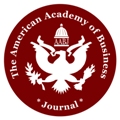
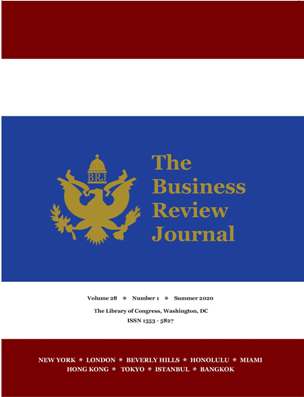
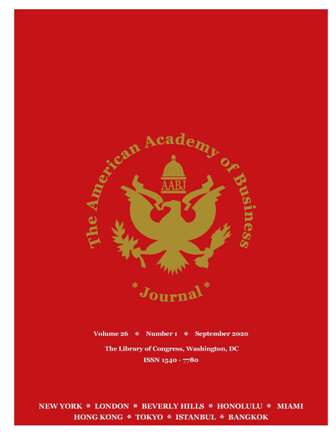
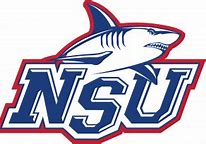
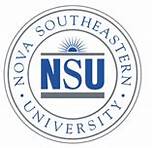
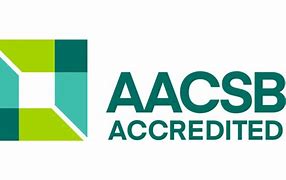

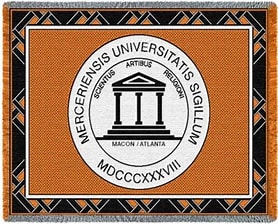

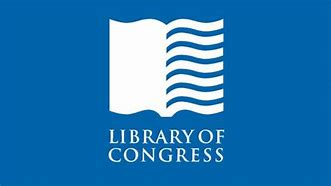
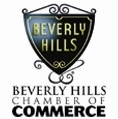
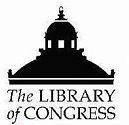
.gif)